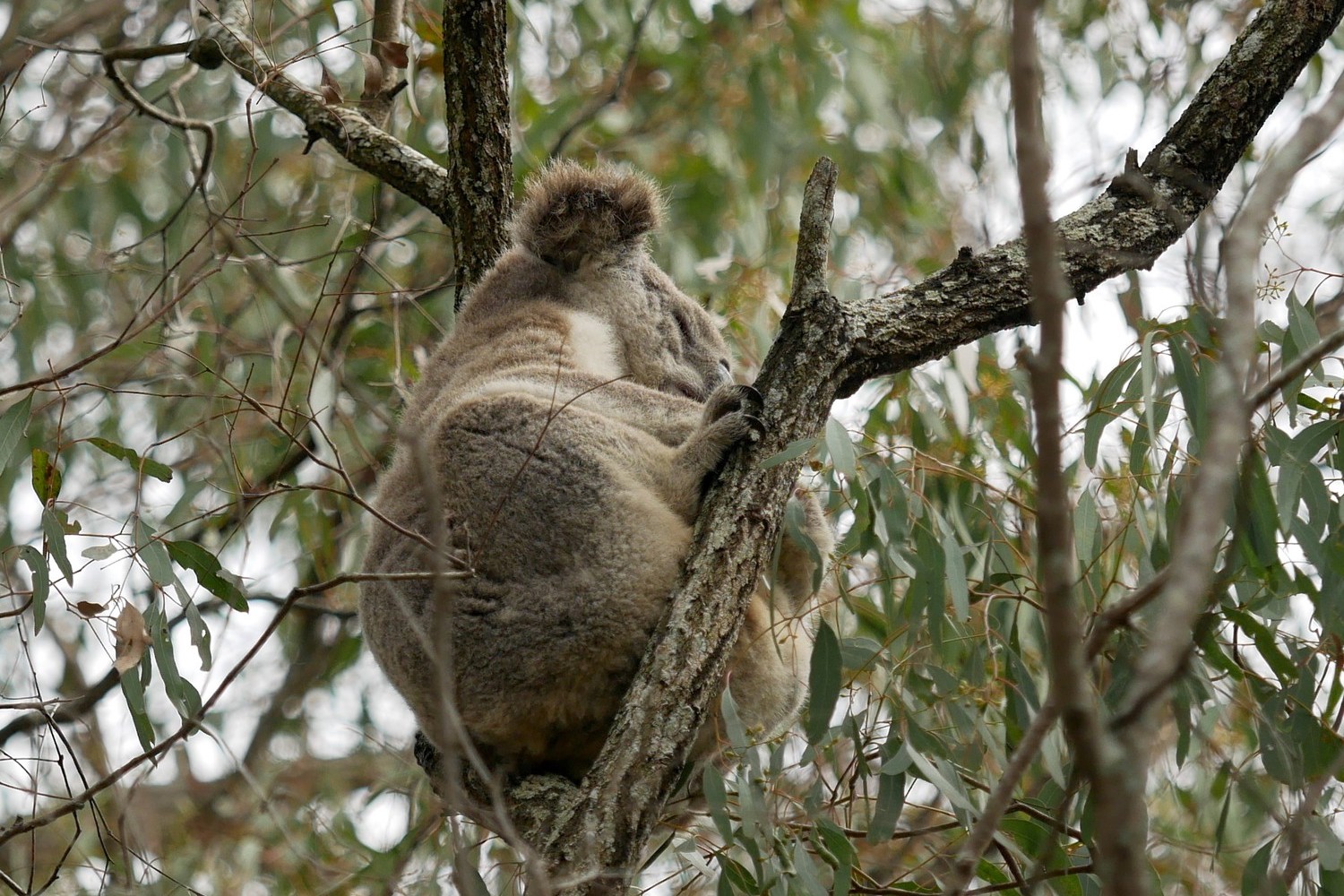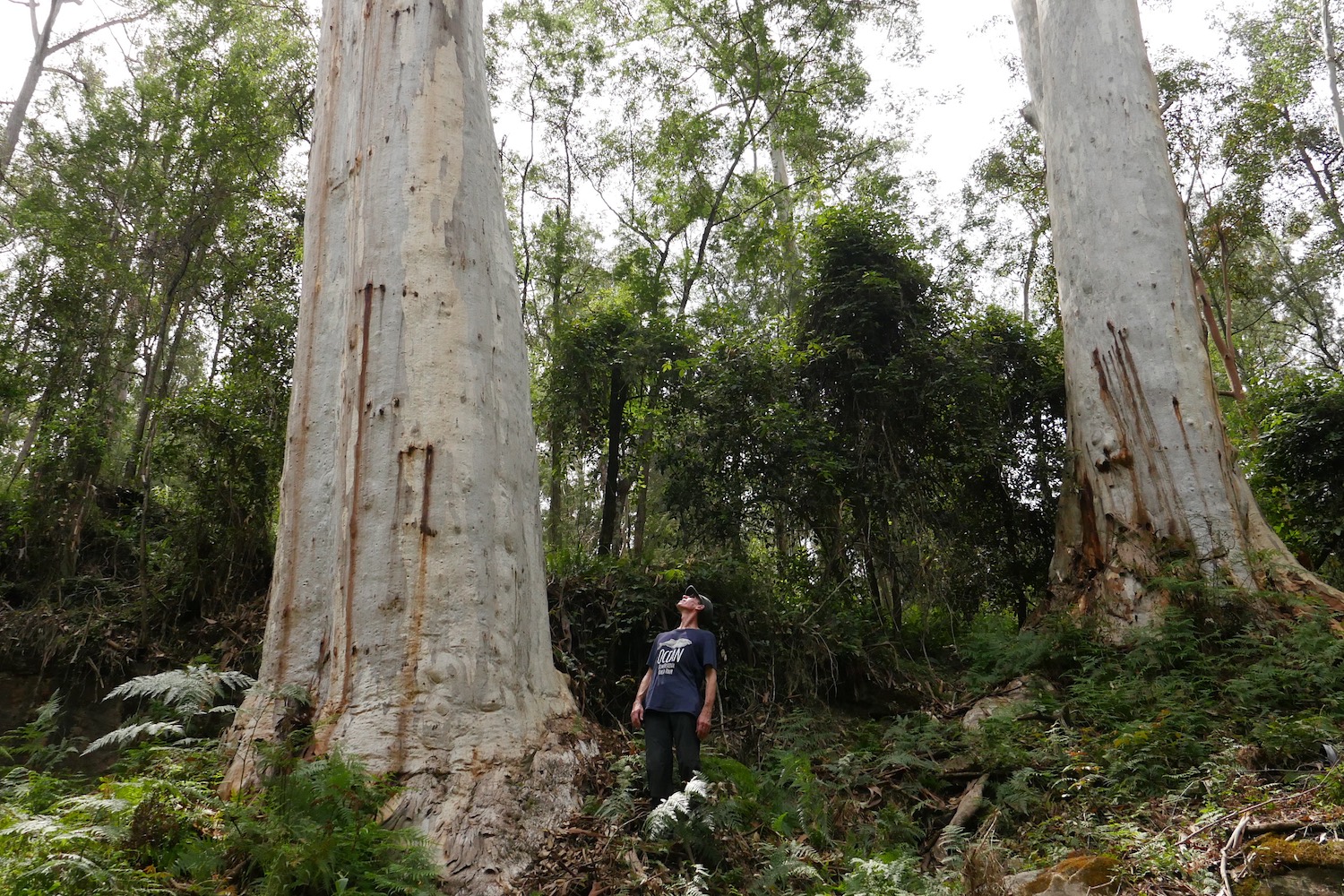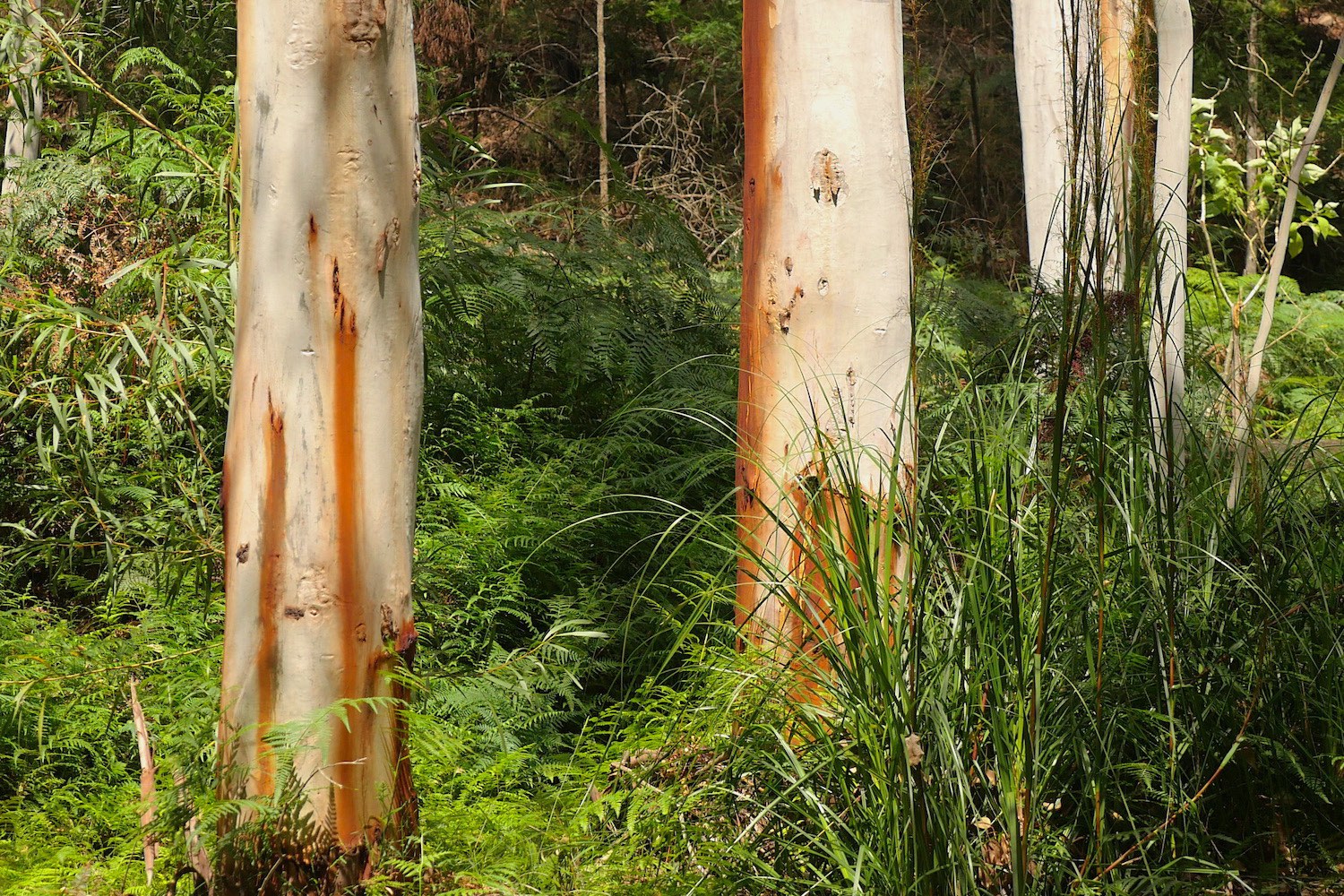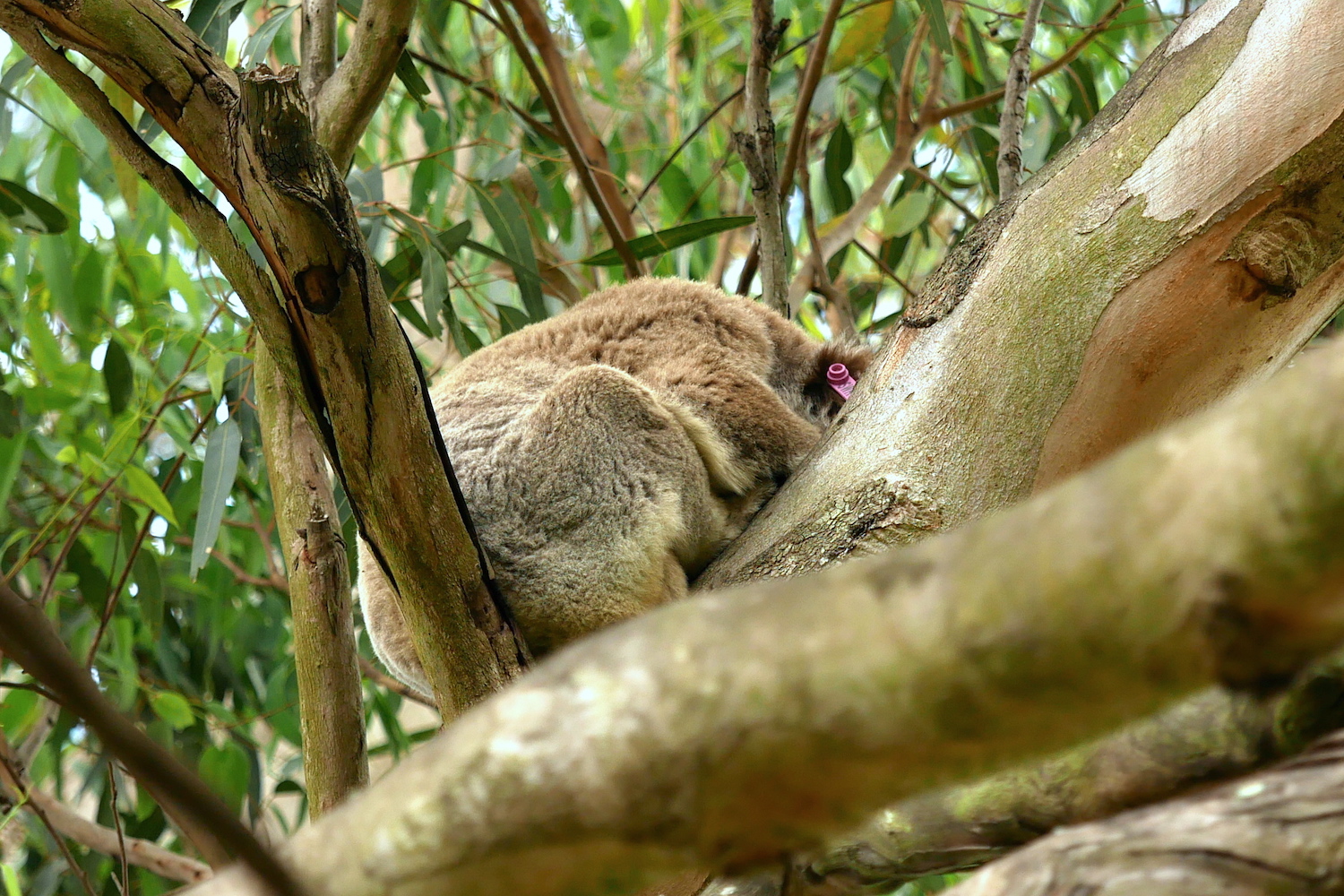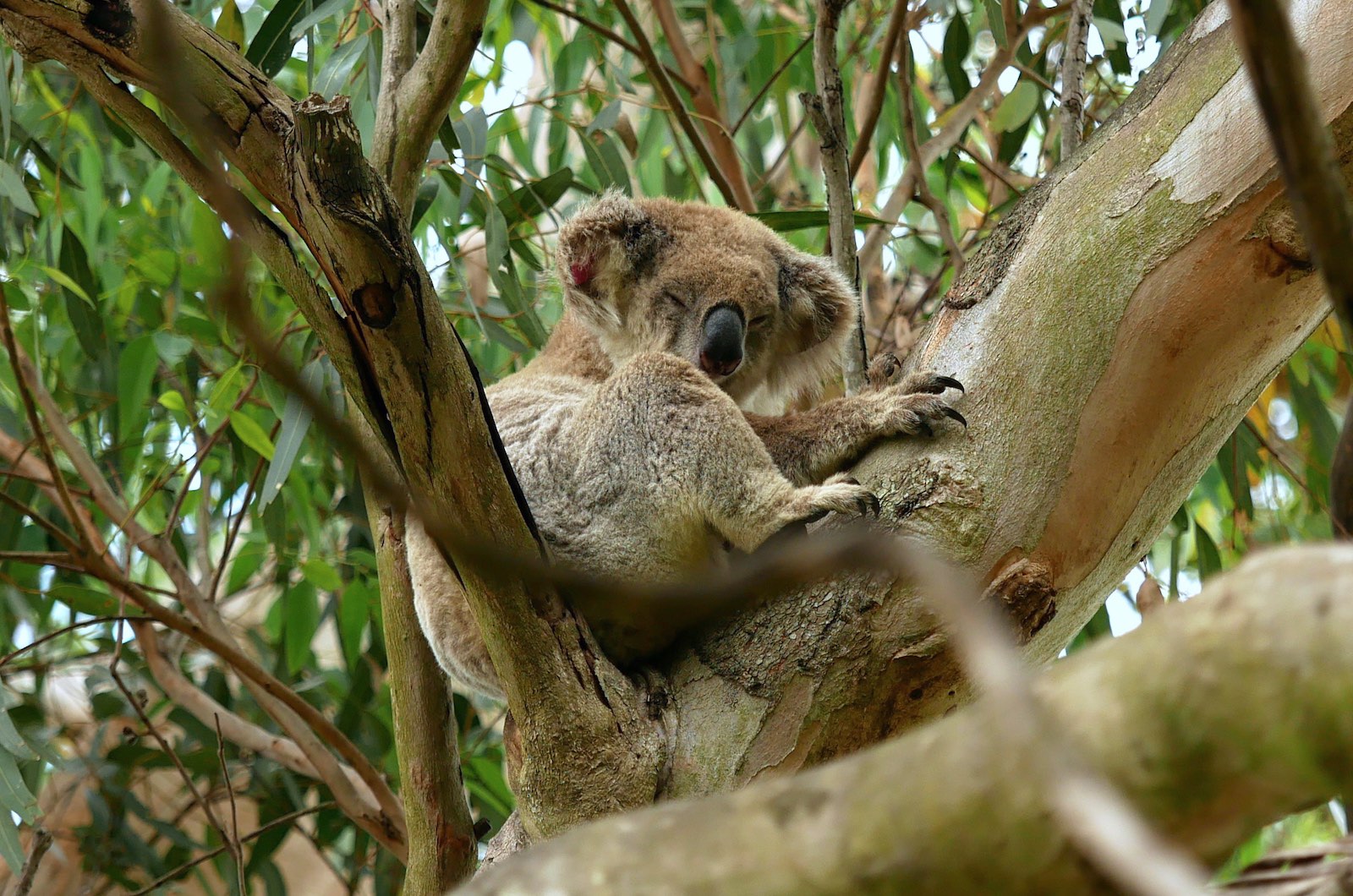
KOALA ADVOCACY
Speaking Up, Promoting Best Practice & Providing Connection
Speak Up for Forests
Submissions on the future of forestry in NSW close on 13 October, 2024
5 October 2024

The NSW Independent Forestry Panel is currently accepting submissions on it's consultation on the sustainability of current and future forestry operations in NSW until 13 October 2024. Any submissions made will be considered by the NSW Government in developing its Forestry Industry Action Plan which will determine the future of the NSW timber industry.
This your opportunity to speak up & make your voice heard
Please take the time to tell the Government that we must stop native forest logging in NSW.
Many threatened & endangered species continue to be harmed by the logging industry. When habitat is destroyed, the animals that depend on that habitat (such as koalas, greater gliders & glossy black cockatoos) are pushed further towards extinction.
Make a Submission
You can make an online submission to the Independent Forestry Panel on the following topics:
- Sustainability of current and future forestry operations in NSW.
- Environmental and cultural values of forests, including threatened species and Aboriginal cultural heritage values.
- Demand for timber products, particularly as relates to NSW housing, construction, mining, transport and retail.
- The future of softwood and hardwood plantations and the continuation of Private Native Forestry in helping meet timber supply needs.
- The role of State Forests in maximising the delivery of a range of environmental, economic and social outcomes and options for diverse management, including Aboriginal forest management models.
- Opportunities to realise carbon and biodiversity benefits and support carbon and biodiversity markets, and mitigate and adapt to climate change risks, including the greenhouse gas emission impacts of different uses of forests and assessment of climate change risks to forests.
Submission Guide
For help making a submission, visit the Nature Conservation Council submission guide.
Submissions close on 13 October 2024.
A Pathway out of Native Forest Logging - Sydney
Event by The Australia Institute - Monday, Sep 30, 2024 - 6pm at Redfern Town Hall - 19 September 2024
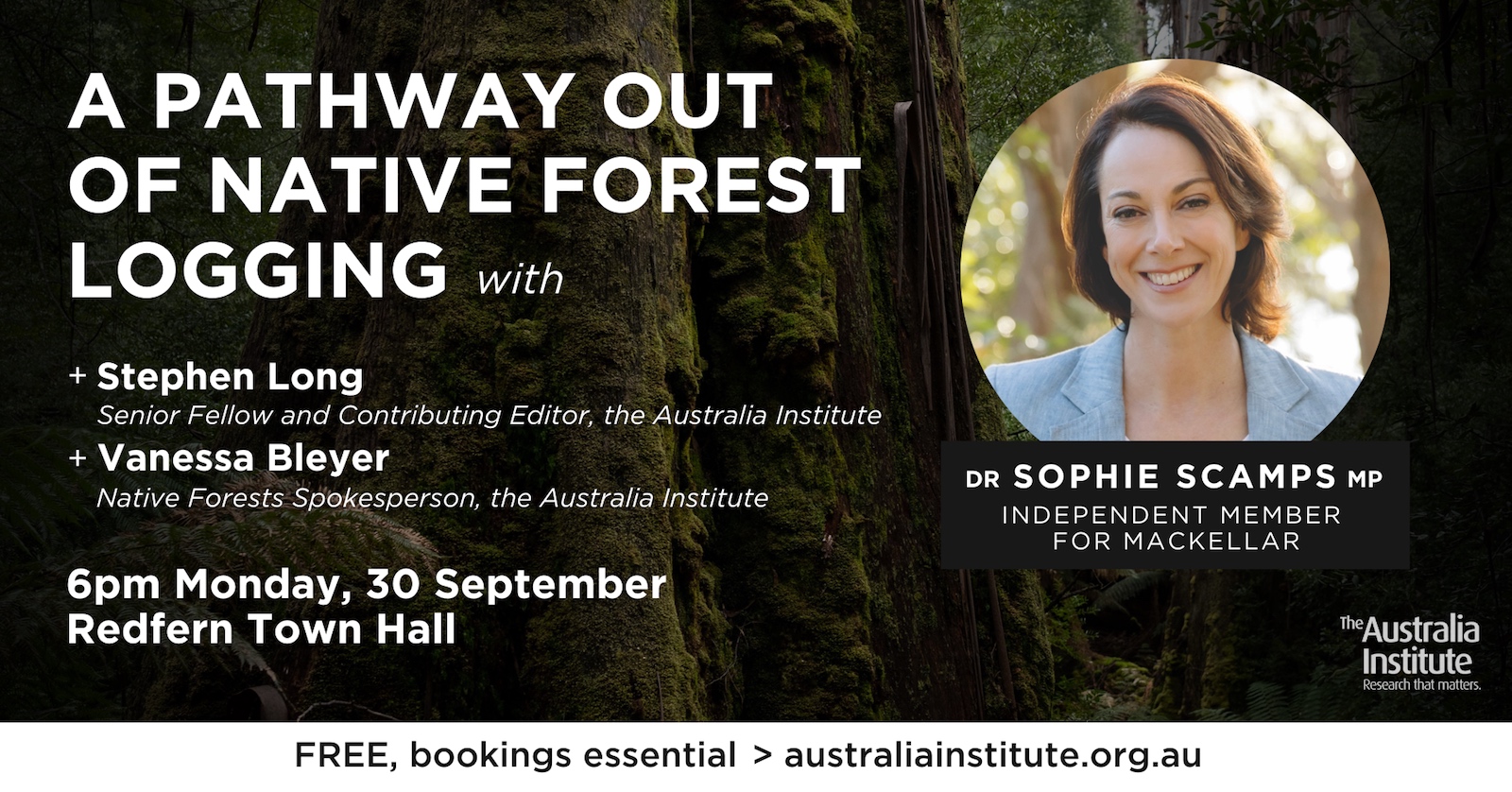
Sydney – Let’s talk about a pathway out of native forest logging – we can’t afford not to.
Australia has the highest rate of deforestation in the developed world, and NSW is the worst ranked state in the country for protecting & restoring trees.
That means that NSW is a rogue state for destroying the natural ecosystem that koalas and so many of our unique wildlife rely on for their survival.
We've begun to see the end of native forest logging in Australia: Western Australia and Victoria closed their native forest industries, and New South Wales should be on the same path.
However, the NSW Government continues to delay the inevitable end to an industry that is a relatively small employer, subsidised by the taxpayer, and one that causes climate change and habitat loss, and is on track to cause the extinction of some of our most precious wildlife species.
Analysis from the Forest Alliance NSW reveals that Forestry Corporation is logging areas of the proposed Great Koala National Park at a rate more than 3 times the rest of Northern NSW.
Please come to this important meeting to discuss:
"A Pathway out of Native Forest Logging"
WHEN
Monday, September 30, 2024 at 6:00pm - 7:30pm
WHERE:
Redfern Town Hall
73 Pitt St
Redfern, NSW 2016
BOOKING ESSENTIAL:
The Australia Institute - A Pathway out of Native Forest Logging
SPEAKERS:
Dr Sophie Scamps MP
Dr Sophie Scamps is the Independent Member of the Federal electorate of Mackellar. Sophie became the first Independent to win the Northern Beaches seat in 2022, promising a new way of doing politics, putting the community first and campaigning on a platform of climate action, integrity, health and equality. Sophie is also the sponsor of the Forest Pledge, an initiative that brings together politicians, scientists and civil society groups who want to end native forest logging throughout Australia.
Stephen Long
Stephen Long is Senior Fellow and Contributing Editor at the Australia Institute. Stephen is a highly acclaimed journalist, renowned for his forensic investigative reporting, analysis and commentary. During a long career he worked as a senior reporter on the ABC’s flagship investigative journalism program, Four Corners, as economics correspondent and national finance correspondent, filing across nearly all ABC outlets.
Vanessa Bleyer
Vanessa Bleyer is the Australia Institute spokesperson for Native Forests and the Director and Principal Lawyer at Bleyer Lawyers. She has a long history operating at the interface between our forests and the law. She was President of Lawyers for Forests Inc from 2003-2007 and returned as a committee member in 2021. She has twice been awarded the Law Institute of Victoria’s President’s Award for providing Access to Justice for our native forests and the species that depend on them. She was Chairperson of Environment Tasmania Inc from 2012 to 2015, and in 2022, she became a board member of Landcare Tasmania.
FREE, registration essential:
BOOK AT:
The Australia Institute - A Pathway out of Native Forest Logging
Define ‘tree’: The fight over Woolworths’ eco-beef pledge
Cattle Australia campaigns to chop down trees as 'land management' - 16 September 2024

Any tree that is felled to make room for agriculture is deforestation, according to the definition supported by the United Nations and World Wildlife Fund, but this definition has sparked a fierce debate between farmers and conservation groups about when removing trees to make way for grazing land should be called deforestation, or when it should be acceptable as 'land management'.
Three weeks ago the Australian Conservation Foundation exposed 50 cases of nature destruction where agricultural properties have cleared significant areas of forest, and supermarket Woolworths immediately announced that it would stop selling beef linked to deforestation by the end of 2025. However Coles is still refusing to commit to selling deforestation-free beef.
Cattle Australia (CA) today launched its Land Management Commitment (LMC) strategic policy, which emphasises the primacy of agricultural land and includes a definition of deforestation.
Deforestation: "the illegal clearing of trees on land, used for agricultural and non-agricultural purposes, that violates vegetation management laws and where trees exceed forest thresholds".
CA also state that "Forest does not include land that is predominantly under agricultural use", and "Agricultural land is defined as land used for the production of food and fibre, including the grazing of livestock".
Cattle Australia hold these unreasonable positions:
(1) if trees are cleared from land used for grazing livestock, then it CANNOT be classed as deforestation.
(2) if land clearing complies with existing laws, then it CANNOT be classed as deforestation.
However, as the Australian Conservation Foundation states, "Forests on agricultural properties are still forests. In fact, farmers look after some of the most biodiversity-rich forests on the continent. Bulldozing those forests is deforestation."
And the fact is, if forested land is cleared, it is by definition 'deforestation' whether or not it complies with the law. Just because deforestation is legal in many cases doesn't mean that it's no longer deforestation.
Wilderness Society manager of policy and strategy Tim Beshara said Australian companies must align with global commitments to show consumers they are acting sustainably.
Any serious deforestation-free commitments need to align with internationally recognised, robust initiatives," he said. "Financiers, international markets and consumers will see straight through this attempt to continue business as usual."
Australian Conservation Foundation campaigner Nathaniel Pelle said Cattle Australia’s definition of deforestation, which focused on compliance with state and federal laws, was insufficient to stem environmental losses.
"We are the only OECD country on the list of global deforestation hotspots because our laws don’t work," he said.
Read the full story at:
SMH: Define ‘tree’: The fight over Woolworths’ eco-beef pledge
NSW Independent Forestry Panel
Submissions are now open on the future of forestry in NSW - 12 September 2024

The NSW Government has established an Independent Forestry Panel to lead consultation on the sustainability of current and future forestry operations in NSW, ahead of the NSW Government developing its Forestry Industry Action Plan. The Forestry Industry Action Plan is intended to outline the path NSW will take to ensure a sustainable timber industry that aligns with the government’s key environmental priorities.
There are concerns that the three member Independent Forestry Panel is not truly independent, considering that the Chair, Peter Duncan AM, was previously Managing Director of Forests NSW, and panel member Mick Veitch was previously the ALP’s shadow Forestry Minister.
Environment Minister Penny Sharpe was also questioned in the Budget Estimates Committee over the fact that there is no expert forestry ecologist on the panel.
Make a Submission
You can make a written submission to the panel addressing the following topics:
- Sustainability of current and future forestry operations in NSW.
- Environmental and cultural values of forests, including threatened species and Aboriginal cultural heritage values.
- Demand for timber products, particularly as relates to NSW housing, construction, mining, transport and retail.
- The future of softwood and hardwood plantations and the continuation of Private Native Forestry in helping meet timber supply needs.
- The role of State Forests in maximising the delivery of a range of environmental, economic and social outcomes and options for diverse management, including Aboriginal forest management models.
- Opportunities to realise carbon and biodiversity benefits and support carbon and biodiversity markets, and mitigate and adapt to climate change risks, including the greenhouse gas emission impacts of different uses of forests and assessment of climate change risks to forests.
You can make an online submission to the Independent Forestry Panel at the Online consultation.
Submissions will be open from 12 September 2024 to 13 October 2024. Your submission will be published on the Panel web page, which is hosted on the Independent Planning Commission website. Find out more information about the Panel and the submission process and procedures.
The Panel will also undertake other modes of stakeholder engagement during this process. Register to receive email updates on the progress of the Independent Forestry Panel consultations.
ACF March For Nature
March with Australian Conservation Foundation on Saturday 5 October
4 September 2024

Join the Australian Conservation Foundation, Birdlife, the Wilderness Society, the Nature Conservation Council of NSW, and nature-lovers across Sydney for a big, powerful and inspiring March for Nature on Saturday 5th October 2024.
Everywhere we look, nature is at breaking point. The loss & fragmentation of koala habitat is one symptom of the destructive effect our society has on nature & wildlife. Koalas are on track to be extinct in NSW by 2050, and yet our government continues to approve the destruction of koala habitat for agriculture, mining, energy projects, and housing developments.
As the Australian Government prepares to host world leaders for the Nature Positive Summit in Sydney, we want to send a powerful message that continued destruction of nature is unacceptable.
What: ACF March For Nature
When: Saturday, 5th October, 11am - 2pm
Where: The Domain, Sydney
RSVP: March For Nature
Meet at Speakers Corner, the Domain, where speakers will welcome the crowd and explain what's at stake for nature and wildlife. Then march 1.3km to Mrs Macquarie's Chair (Botanic Gardens).
The march will be followed by activities for people of all ages and families, including a sustainable animal sculpture making workshop. There'll be stalls run by conservation and climate groups.
For more information, visit ACF March For Nature.

Marsupial of the Year
Vote for your favourite marsupial - The Project - 2 September 2024

Right now, across Australia, many Marsupials face endangerment due to human activities.
Habitat loss from things such as deforestation and urbanisation, as well as the introduction of invasive species, have significantly impacted their populations.
So, The Project (Channel 10 TV) has launched "Marsupial of the Year" to bring awareness to their plight and educate people on how they can help save some of the cutest animals in the world.
Visit Marsupial of the Year.
Check out the amazing lineup of marsupial nominees and choose the one you think should be crowned “Marsupial of the Year 2024.”
After two weeks of voting, The Project will announce the top 10 most popular marsupials based on your votes.
Then you can choose the marsupial you love the most and donate to their chosen charity. Learn more about some of the incredible organisations working to protect these amazing creatures.
The marsupial who raises the most money will take home the title. Every donation counts, so all the charities supporting these amazing creatures will benefit.
Read more about how it works, and vote for Marsupial of the Year.

Coles & Woolworths Contribute to Koala Habitat Loss
ACF Expose Deforestation Caused By Beef Industry - 27 August 2024

Koalas depend on eucalypt forests for their habitat, and there’s one industry that destroys more forests than any other - beef farming.
The Australian Conservation Foundation has found and documented 50 cases of forest destruction, heavily clustered in New South Wales and Queensland.
ACF has compiled a list of 50 properties that have cleared significant areas of forest in the past few years that all meet two key criteria:
1) data suggests all of them contain habitat of protected species or ecological communities
2) all of them are linked to the Australian beef industry.
The Australian Conservation Foundation spent hundreds of hours sifting through deforestation detections and satellite images from across Australia to find and verify nature destruction. The scale of what the team discovered is shocking. In total, the 50 beef properties had bulldozed 16,000 hectares of bush. The biggest single case of destruction was over 1500 hectares of grassy woodland. Another example was the destruction of 40 hectares of tropical rainforest (equivalent to about 20 rugby fields) bulldozed next door to the Wet Tropics World Heritage Area in Queensland.
ACF cross-referenced these 50 properties with threatened species records, and found the homes or feeding grounds of some of Australia’s most loved and vulnerable animals may have been destroyed – including cassowaries, koalas, pink cockatoos, northern quolls, greater gliders, and regent honeyeaters.
Deforestation destroys habitat
Deforestation destroys habitat and is the main threat to Australia’s endangered & threatened species, causing the deaths of 50-100 million native animals every year.
Deforestation robs species of their homes and denies them access to food, water, safe movement across the landscape and causes stress, injury, illness and death. It endangers the future of the natural world we love and depend on – for our health, our climate, our economy and our identity.
Coles and Woolworths
Australia’s two major supermarkets, Coles and Woolworths, are the biggest suppliers of beef to Australian consumers. They have a massive influence on the beef industry that’s behind most of the bulldozing and deforestation that leaves our precious animals homeless and pushes them towards extinction.
But Coles and Woolworths have failed to commit to eliminating deforestation from their supply chains – even though their smaller rival Aldi has.
What can you do?
Coles and Woolworths are conscious of their public image, and they have the power to change the rate of bulldozing of forests and woodlands.
You have the power to influence Coles & Woolworths, and therefore the rate of deforestation caused by beef farming in Australia.
PLEASE TAKE ACTION
Add your voice to the call for supermarkets to commit to stop bulldozing nature by signing this open letter to Coles & Woolworths.
This article is a summary of information provided by the Australian Conservation Foundation: We found the nature destruction supermarkets don’t want you to know about.

UPDATE:
A day after ACF exposed these 50 cases of nature destruction, supermarket Woolworths announced it would stop selling beef linked to deforestation by the end of 2025! But Coles is still refusing to commit to selling deforestation-free beef.
It will be important to examine how Woolworths define 'deforestation', because Cattle Australia (which represents beef producers in Australia) insists there is no deforestation problem & wants to add caveats to the definition of forests if the forest is on ‘agricultural land’.
Cattle Australia says clearing agricultural land should not count as deforestation and therefore any future labels or rules about deforestation used by supermarkets or regulators must exclude large sections of forest land on cattle properties.
If Woolworths define 'deforestation' in this sense, then their commitment may prove to be worthless.

Join the Koala Army's March for Creatures Great and Small
March for Koalas in Canberra on Sunday, September 1st, 2024 - 12 August 2024
On Sunday the 1st of September 2024 join the Koala Army’s March for Creatures Great and Small in Canberra, ACT.
For one day, a cast of thousands will represent each and every creature that calls Koala forests their home. From Koalas to kangaroos, emus to echidnas, bilbies to bees. Choose an animal squadron (or suggest your own), dress up as your favourite animal – and make this a truly festive day with a purpose!
Join us in person on 1 September in Canberra – OR – if you live overseas or cannot be there you can still celebrate from afar wherever you are in the world!
Thousands of Koala and native Australian animal supporters will take to the streets of Canberra on Sunday, September 1st, 2024, in celebration and shared commitment to protecting Australia’s wildlife. Join us!
For all the details visit: Koala March
Free buses available from Sydney: Register for bus

NSW Parliamentary Friends of Forest
Guest Speaker Event - NSW Parliament House - 6 August 2024

Currently, the NSW Government’s Forestry Corporation continues its program of destructive logging across our precious public native forest estate, including within the promised Great Koala National Park. The damage and destruction being caused to our forests and the myriad of threatened species that call them home is criminal.
It’s an infuriating reality that the only reason that this industry continues to decimate and destroy our public forests is down to politics. NSW Labor could end native forest logging tomorrow if they wanted to, instead they are ignoring the science and evidence and they’re also funnelling millions of dollars into propping up this destructive industry of the past.
But the resistance is powerful and it is growing. Everyday we get closer to ending the madness that is native forest destruction and getting on with the work of protecting and recovering our native forest estate, and every bit of pressure matters.
In a Parliamentary Friends of Forests event, Sue Higginson MLC has invited 4 incredible experts who bring a wealth of knowledge to the current conversation on NSW Forests, their resilience, and the desperate need to save them.
Dr Kita Ashman
Dr Kita Ashman has a background in spatial dynamics and threatened species recovery and management. She studied Wildlife and Conservation Biology as an undergrad, and completed her Honours in Evolutionary Biology followed by a PhD in Wildlife Ecology focusing on koala spatial dynamics. Dr Ashman is currently the Threatened Species and Climate Adaptation Ecologist at World Wide Fund for Nature and Adjunct Research Associate at Charles Sturt University.
Dr Philip Zylstra
Dr Philip Zylstra is a bushfire researcher and holds two adjunct positions as an Associate Professor at Curtin University, and as Honorary Fellow at the University of Wollongong. Dr Zylstra helped to pioneer the modern role of Fire Behaviour Analyst, developing the first software used to guide efforts to contain large fires. His research has focused on efforts to build a basis for fire management that has sound scientific foundations and applications and he has developed many models and frameworks to provide guidance in the new climactic reality of the earth.
Dr Stephen Phillips
Dr Stephen Phillips is a wildlife ecologist and former university lecturer with nearly 40 years of experience in all facets of natural area management ranging from the investigation and planning of new conservation areas to habitat/population modelling and the design of specialised survey programs for threatened plants and animals. Amongst many things, Steve is an acknowledged authority on the ecology, conservation and management of koalas.
Professor David Lindenmayer
Professor David Lindenmayer is a world-leading expert in forest ecology and resource management, conservation science, and biodiversity conservation. Professor Lindenmayer currently runs 5 large-scale, long-term research programs in south-eastern Australia, primarily associated with developing ways to conserve biodiversity in farmland, wood production forests, plantations, and reserves. Professor Lindenmayer has published more than 1445 scientific articles and 49 books including his most recent "The Forest Wars: The Ugly truth about what's happening in our tall forests."
THE KOALAS FILM - HORNSBY GREENS
Special Screening of The Koalas Film by Hornsby Greens - 19 July 2024

The Koalas Film will be shown at a special screening with a Q&A held at Berowra hosted by the Hornsby Greens on Sunday 21 July.
What: The Koalas Film with Q&A
When: Sunday 21 July, 2:30pm - 5:30pm
Where: Berowra Community Centre, Gully Road, Berowra, NSW
Booking: Register for this event here
There will be a Q&A Panel discussion after the film, with the following guests:
Sue Higginson - NSW Greens MLC
Sue Higginson is a Greens MP in the NSW Parliament. Her journey started in the old-growth forests of the North Coast as a frontline activist and her passion for protecting our precious native forests is just as strong today. Sue is driven by justice, social and environmental. She is in the NSW Parliament to bring in laws that protect First Nations people and their culture, to end logging in our public native forests and the destruction of nature, and to challenge the corporate interests that want coal and gas mining extended and expanded in communities across our state.
Lilly Schwartz - Hills-Hornsby Rural Koala Project
Citizen scientist, Lilly Schwartz, runs the Hills-Hornsby Rural Koala Project, and was named The Hills Shire’s Environmental Citizen of the Year 2024. HHRKP is entirely volunteer run and investigates the distribution and population density of local koalas by working with the community to map sightings. This mapping is used to advocate for the koala population as well as to identify areas for searching for koalas and other wildlife using field equipment. The Hills-Hornsby Rural Koala Project has recently won funding to carry out thermal drone surveys to search for koalas in Maroota Forest north of Glenorie.
Shaun Warden - Growing Food for Wildlife Project
The Growing Food for Wildlife Project allows the wildlife rehabilitation community, bush care volunteers, citizen scientists and the general public to connect, develop and share a stronger knowledge base. Growing Food for Wildlife brings together many different communities to plant flora which can be used to help the wildlife rehabilitation community.
Scott Melhuish - Koala Advocacy
Scott Melhuish was previously involved with Save Sydey's Koalas advocating to protect koalas & their habitat at Lendlease's Mt Gilead & Figtree Hill developments near Campbelltown in south west Sydney. He's now involved with the Hills-Hornsby Rural Koala Project, and started Koala Advocacy which aims to speak up for the protection of koalas & their habitat, promote best practice for koala conservation strategy, and provide connection for koala rescue, care & support groups. Scott's also involved with Rising Tide, a diverse movement of ordinary people, demanding Australia honours our commitment to the goals of the Paris Climate Agreement and end fossil fuels exports.
CALLING OUT FOREST VANDALS
Webinar - Facing up to Forest Logging as Vandalism - 12 June 2024

Currently, bulldozers and police have closed in on forest protectors standing their ground at Orara East State Forest in the promised Great Koala National Park.
Over the weekend, citizen scientists proved that the Forestry Corporation had failed to identify potential koala habitats, as required by law, before logging commenced. Local protectors did an extraordinary job to delay destruction but police have arrived and the logging has resumed.
Unfortunately, this is not a unique story in NSW, where Forestry Corporation and its contractors enjoy a total lack of oversight and accountability. It is a deep rot and it is destroying our irreplaceable places.
In this important Webinar, NSW Upper House Greens MP Sue Higginson will be joined by Prof. David Lindenmayer, ecologist Mark Graham, and forest activist Sooty Danes to discuss what is going on in our precious public forests and what we are doing to put an end to this state-sanctioned ecological vandalism.
What: Webinar - Facing up to Forest Logging as Vandalism
When: Wednesday 12 June, 6:30PM - 7:30PM
Where: Free and online - RSVP essential!
NSW Labor continues to industrially log our forests, even those they committed to protecting as part of the Great Koala National Park in the State’s north. Our precious public native forest estate has been flogged for two centuries and it can’t take anymore.
Every time the Forestry Corporation logs one of our forests they make it susceptible to more frequent and intense bush fire, they drive native animals closer to extinction, they diminish landscape resilience and they destroy our frontline defence against the climate crisis. It doesn’t have to be this way.
If you're concerned about what's happening to our forests and you’re ready to do something about it, please come to this important Webinar!
Sue Higginson MLC
Sue is a Greens representatives in the NSW Parliament. Her journey started in the old-growth forests of the North Coast as a frontline activist and her passion for protecting our precious native forests is just as strong today. Sue is driven by justice, social and environmental. She is in the NSW Parliament to bring in laws that protect First Nations people and their culture, to end logging in our public native forests and the destruction of nature, and to challenge the corporate interests that want coal and gas mining extended and expanded in communities across our state.
Professor David Lindenmayer
Professor David Lindenmayer is a world-leading expert in forestry ecology and resource management, conservation science, and biodiversity conservation. Professor Lindenmayer has recently published an important book - The Forest Wars: The ugly truth about what's happening in our tall forests. This book lifts the lid on the destruction of native forests by government corporations and logging industry that is making bushfires worse, killing wildlife and costing taxpayers millions, for the sake of exported woodchips.
Mark Graham
Mark Graham is a near-lifelong resident of Gumbaynggirr country on the Mid North Coast. He is the custodian of a network of 3 large private conservation reserves containing pure and ancient ecosystems ranging from the steamy lowlands of the Bellinger Valley to the highest (occasionally snow-capped) peaks of the Dorrigo Plateau. Mark works across science, politics, media, industry and community for the protection, restoration and expansion of our life support systems. Recently he has been dedicating his existence to protecting the Great Koala National Park (that Chris Minns promised to protect) from escalating public-funded extinction industrial logging operations.
Sooty, aka Scott Daines
Sooty, aka Scott Daines, is a long time forest and climate activist. Sooty has been involved in campaigns for the forests of New South Wales, East Gippsland and Tasmania, the coal mines of Whitehaven and Adani and Woodsides proposed James Price Point gas plant. He is a founding member and currently President of South East Forest Rescue (SEFR) and Convenor of the South East Region Conservation Alliance (SERCA), joint 2019 Bob Brown Foundation Environmentalist of the Year and 2024 Nature Conservation Council Ziggy Megne Volunteer for the Environment Award winner. SEFR is currently taking Forestry Corporation NSW to court over their failure to adequately search for and protect the endangered Greater Gliders.
Please register for this important Zoom Webinar - Facing up to Forest Logging as Vandalism (Wednesday 12 June, 6:30PM - 7:30PM).
If you have questions about the event please email office@nsw.greens.org.au or call the Greens NSW office on (02) 9045 6999.
WORLD VETERINARY DAY 2024
THEME: "Veterinarians are essential health workers" - 27 April 2024
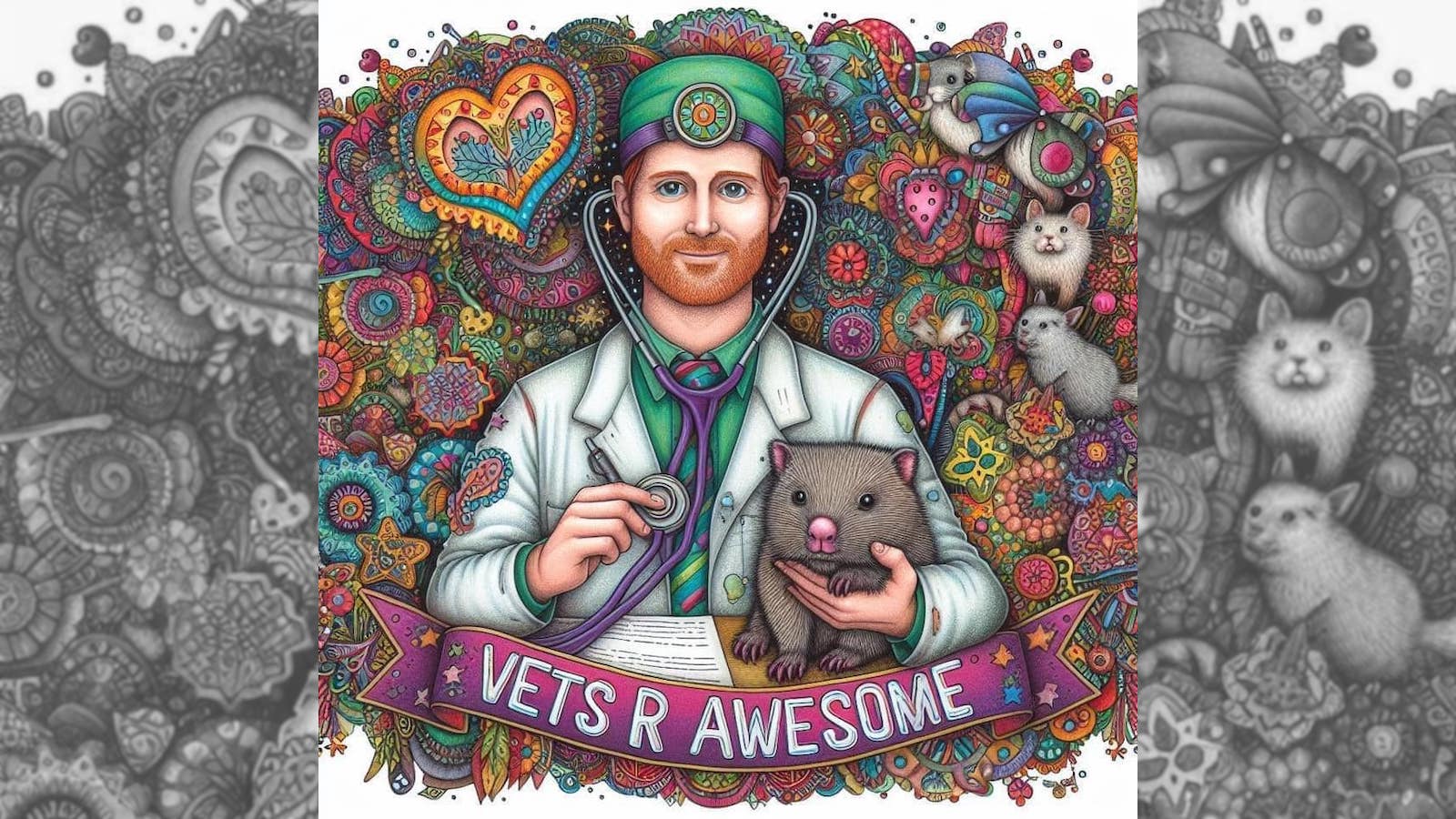
So many wonderful vets treat injured koalas & other Australian native wildlife when they’ve been injured.
We’re truly thankful and proud of all our vets who care for koalas & all injured wildlife, and we celebrate you all!
Today, 27 April, has been World Veterinary Day 2024!
This year’s theme is: “Veterinarians are essential health workers".
Koalas are regularly found injured & are rescued by wildlife carer groups. Often they need to be checked, and treated by veterinarians.
The wildlife rescue & carer sector is largely volunteer, and would be at a loss without all the fabulous vets who treat our wildlife patients!
All too often, funding is a problem, and wildlife carers struggle to find an available vet to treat injured wildlife who are needing urgent veterinary help.
Let’s celebrate veterinarians more, as essential health workers for our native wildlife, and encourage the government to put proper funding into wildlife veterinary services.
Image: Mel & the Menagerie, native & domestic animal rescue inc on Facebook.
EXTENSION TO NSW KOALA STRATEGY REVIEW
Important Update: Extension for submissions by 4 Weeks - 26 April 2024
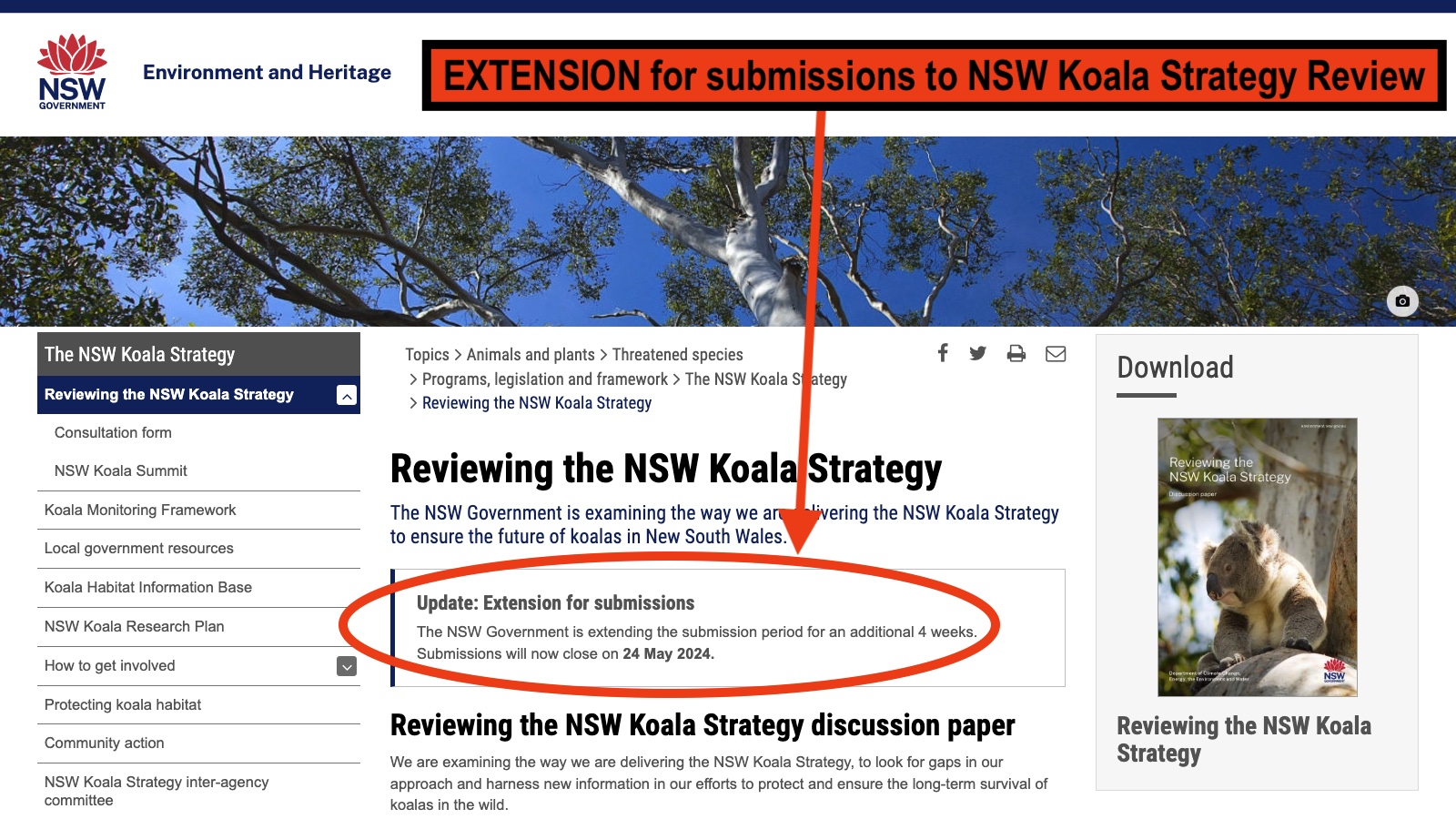
The NSW Government is currently accepting submissions into the review of the NSW Koala Strategy discussion paper.
Submissions were due to close today (Friday, 26 April 2024).
However, in important news, the NSW Government is extending the submission period for an additional 4 weeks. Submissions will now close on Friday, 24 May 2024.
This extra 4 week submission period will allow more people to make a submission to the NSW Koala Strategy Review.
To make a submission please visit NSW Koala Strategy Review.
"THE KOALAS" - COMING SOON
New feature documentary by Sydney based Film Projects - 16 April 2024
"The Koalas" is a new feature documentary by Sydney based Film Projects, coming to cinemas soon.
Wild Koalas are being pushed to the brink by habitat loss, urban development, logging & other factors. Can they survive?
Wildlife carers observe an increase in sick and injured koalas coming into care. A government enquiry finds that the koala could be extinct in the wild by 2050. Firestorms in 2019/20 followed by floods kill an estimated 61,000 koalas. Saving the koala will take more than the promise of emergency government funding, scientific research, or rescue and care.
This film follows the fate of individual koalas that have survived so far but whose future is uncertain. Weaving stories with compelling characters - wildlife carers, scientists, and ecologists in the field, and informed commentary the film questions whether Australia can save an iconic threatened species like the koala. If not, what does it say about us?
The over-arching issue is loss of habitat - all of the other issues that koalas face come in under that habitat loss...
Watch the trailer, and make sure to see "The Koalas" when it hits the big screen!
Inquiries & further info: info@filmprojects.com.au
WINCHESTER COAL MINE THREATENS KOALA HABITAT
One of the largest proposed new coal mines in Australia - 11 April 2024
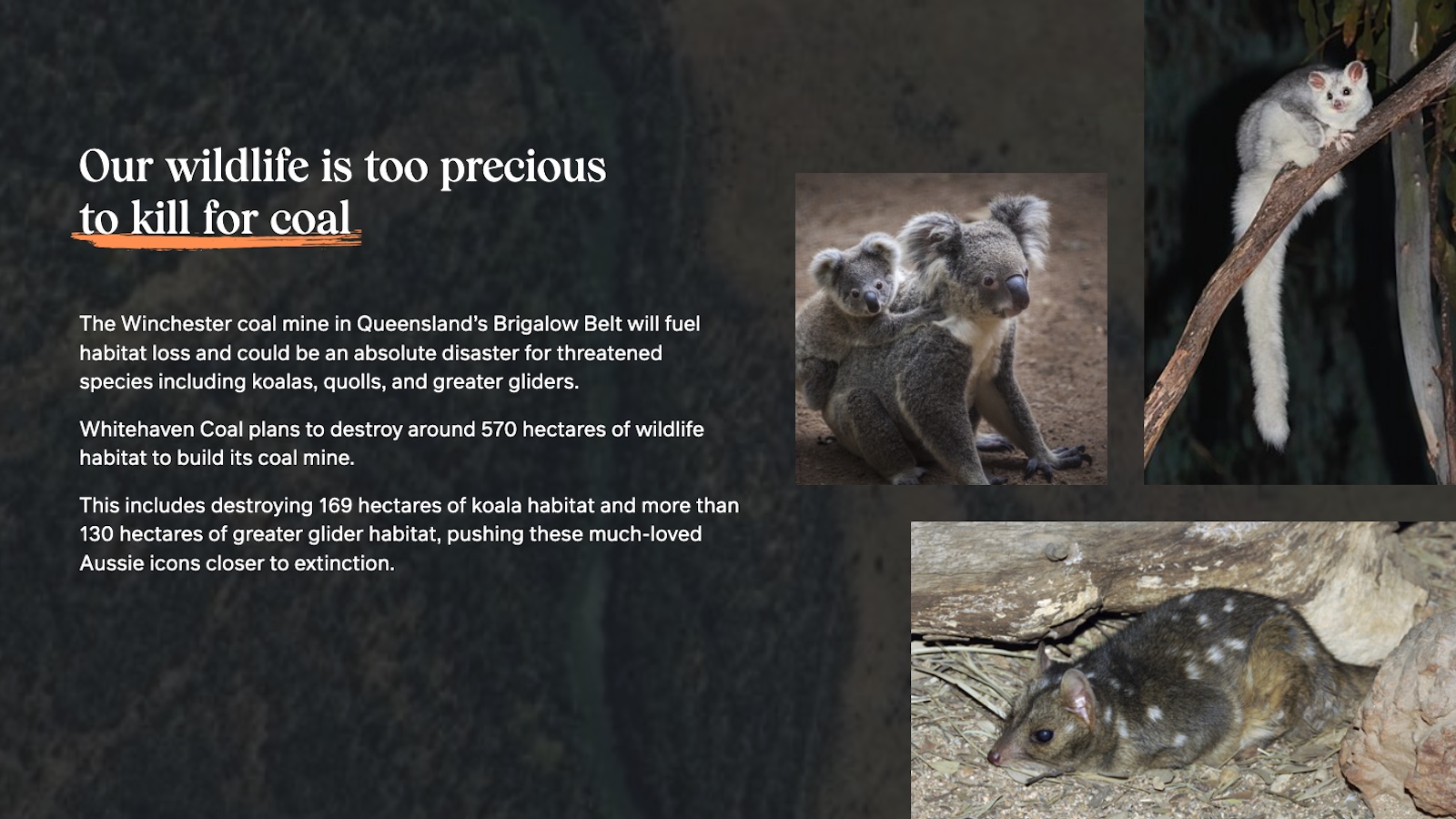
Winchester South coal mine is the looming climate and wildlife disaster you probably haven’t heard of.
Whitehaven Coal is behind this destructive new mine, with plans to dig up to 17 million tonnes of coal every year past 2050 in Queensland’s Bowen Basin.
The mine would create a staggering 583 million tonnes of greenhouse gas pollution over its lifetime.
The Winchester coal mine will fuel habitat loss and destroy 169 hectares of koala habitat and more than 130 hectares of greater glider habitat.
What’s more, Whitehaven plans to dump likely polluted dam water into the Isaac River and leave two massive mine voids that will drain groundwater, forever.
The Environmental Defenders Office are representing the Australian Conservation Foundation and Mackay Conservation Group, who will argue the court should recommend no mining lease or environmental authority be granted for the Winchester South project due to its significant environmental and human rights impacts.
Legal action is one of the most effective tools for challenging environmentally destructive projects like this one. With the law, we can make sure the community’s voice is heard in court and hold decision-makers to account.
You can help supercharge the legal defence of our climate, communities and wildlife by making a donation today at EDO: Winchester South coal mine.
WHY NSW IS LOGGING KOALA HABITAT
Video Report: The Carbon Credit Grift Destroying Koala Habitat - 10 April 2024
Despite a decade-long commitment to establish the Great Koala National Park, the NSW Labor Government is delaying its creation so that the forests can be exploited for carbon credits.
This has disastrous consequences for koalas and their habitat, as well as the climate.
In this video report, the Australia Institute pulls back the curtains on why the koala habitat on the mid-north coast is still being logged.
Officially, the government has stated that the reason for the delay is to allow time for consultation with stakeholders, however this would not be a reason to continue logging koala habitat during the consultation process.
If this was actualy about consultation with stakeholders, then the obvious thing to do would be to place a moratorium on logging during that process.
However, NSW Premier Chris Minns' made a remarkable admission last year, when he disclosed a further motive for the go-slow: the government is reluctant to create the new national park or end logging and land clearing that is destroying koala habitat until it secures another way to make money from the trees.
Essentially, the NSW Government wants to exploit the forests for carbon credits.
Apart from the obvious issue of the forest and koala habitat lost while logging continues, the carbon credits the NSW Government are planning to create are likely to be a sham.
Using carbon credits to ‘offset’ emissions is essentially a license to pollute.
Without stringent laws requiring polluters to cut emissions before turning to offsets, the credits can be used to maintain or increase emissions, exacerbating global warming.
Research has consistently shown that the carbon credit system is rife with abuse, with businesses claiming credits for activities that would have happened anyway.
Read more at the Australian Institue about the Video Report: The Carbon Credit Grift Destroying Koala Habitat
NATIONAL PREMIERE OF "THE FIRST WAVE"
New Rising Tide Film Premieres in Sydney - 4 April 2024
The new Rising Tide film "The First Wave" premiered in Sydney on Thursday, 4th April 2024.
This film documents the 2023 People’s Blockade of Newcastle, the World’s Largest Coal Port in November 2023.
What relevance does this have to koalas?
According to a WWF report released in November 2020, more than 60,000 koalas were killed, injured or affected in some way in the Black Summer bushfires of 2019/2020.
Read: WWF: 60,000 Koalas Impacted by Bushfire Crisis.
2023 was the hottest year in recorded history, and burning more coal is only contributing to the problem and damaging our environment, leading to more extreme drought & bushfires which have a devastating affect on koalas.
As temperatures continue to increase, there will be more days of extreme heat, which can profoundly affect koalas (even without bushfires). Koalas are well insulated with thick fur to cope with cold winter nights, however they’re not able to cool down during extended heatwaves.
Too many days & nights of unrelenting extreme heat can impact koalas, and as we move towards an increase of 1.5 degrees C above pre-industrial levels, koalas are finding it harder to survive. Koalas don’t have air conditioners in their trees.
“The First Wave” is also due to be screened at the Central Coast (Narara Ecovillage), Canberra, Newcastle, Melbourne, Taree & Adelaide - as well as a few other screenings.
Check where the film is being shown: The First Wave screening locations.
Plans are on track to make the People's Blockade of Newcastle Coal Port even bigger in 2024.
MINISTER APPROVES NEW KOALA MANAGEMENT PLAN
Harvesting of Tasmanian blue gums on Kangaroo Island now resumes - 3 April 2024
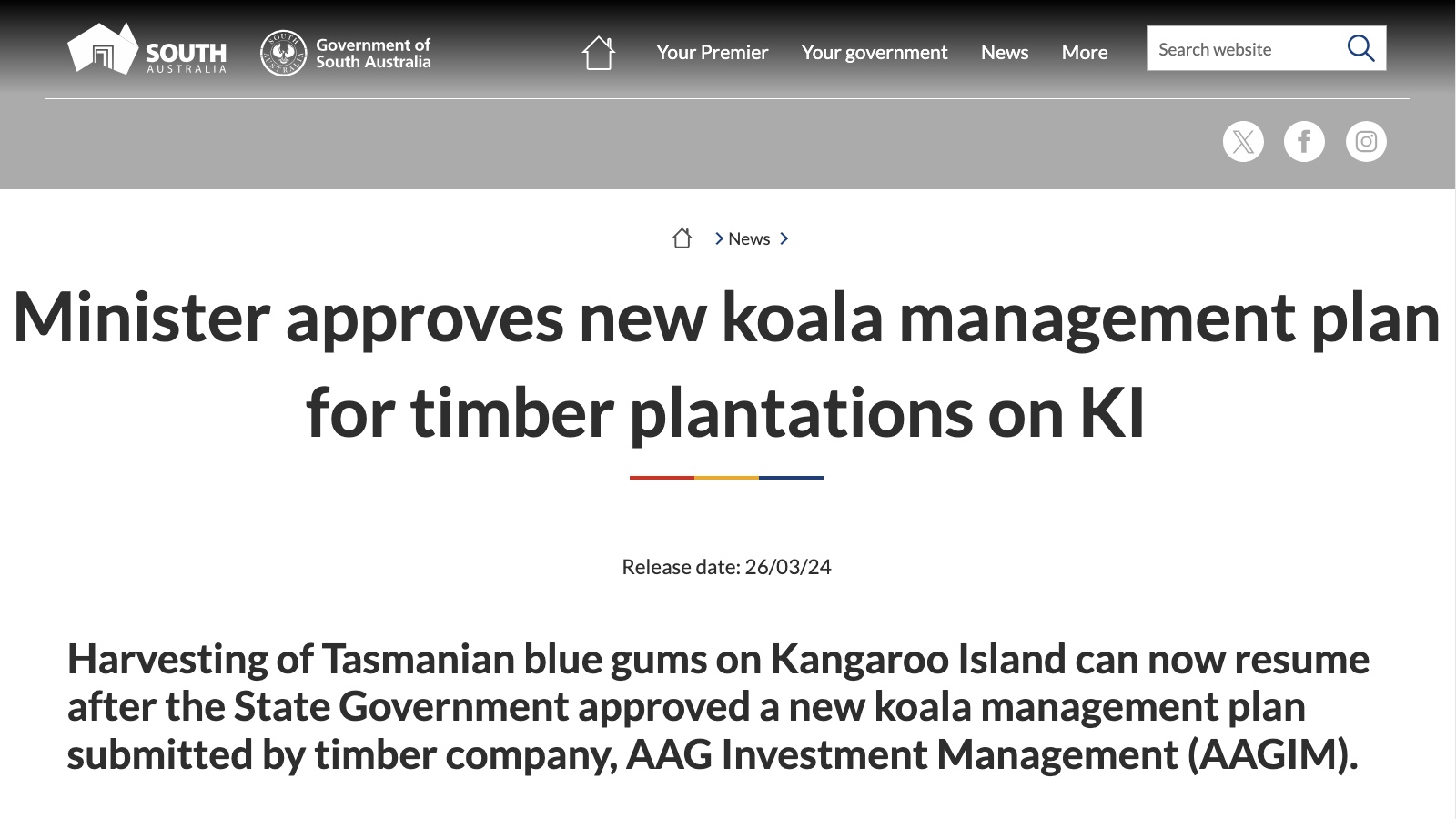
Harvesting of Tasmanian blue gums on Kangaroo Island will now resume after the State Government approved a new koala management plan submitted by timber company, AAG Investment Management (AAGIM).
Regulations introduced by the Government following the release of footage showing koalas being killed and injured within the plantations mean timber companies on the island cannot fell blue gum plantations without an approved koala management plan.
Improvements to koala welfare management outlined in the plan include:
- additional koala spotting requirements and strategies to manage fatigue and communications with harvesters
- a requirement to report incidents within 24 hours, and monthly interactions and operational activity reports be provided to authorities
- notification of planned harvest activity two weeks prior to harvesting
- formalising the relationship between vets, wildlife carers and company
- differentiating koala spotting strategies between structurally stable plantations and those unsafe due to fire impact
Susan Close: "No animal, national icon or not, should ever be treated in this way"
Unbelievably, the Environment Minister, Susan Close, who stated in Parliament that "No animal, national icon or not, should ever be treated in this way", has approved blue gum harvesting by the same company that was chopping down trees with koalas in them, before the investigation is complete.
The investigation is due to consider any koala cruelty within the timber plantations and any breaches of animal welfare laws.
Although there is public video evidence of koalas being flung to their deaths from trees, the Environment Minister has approved the same timber harvesting company to continue logging the koala habitat before the investigation has concluded.
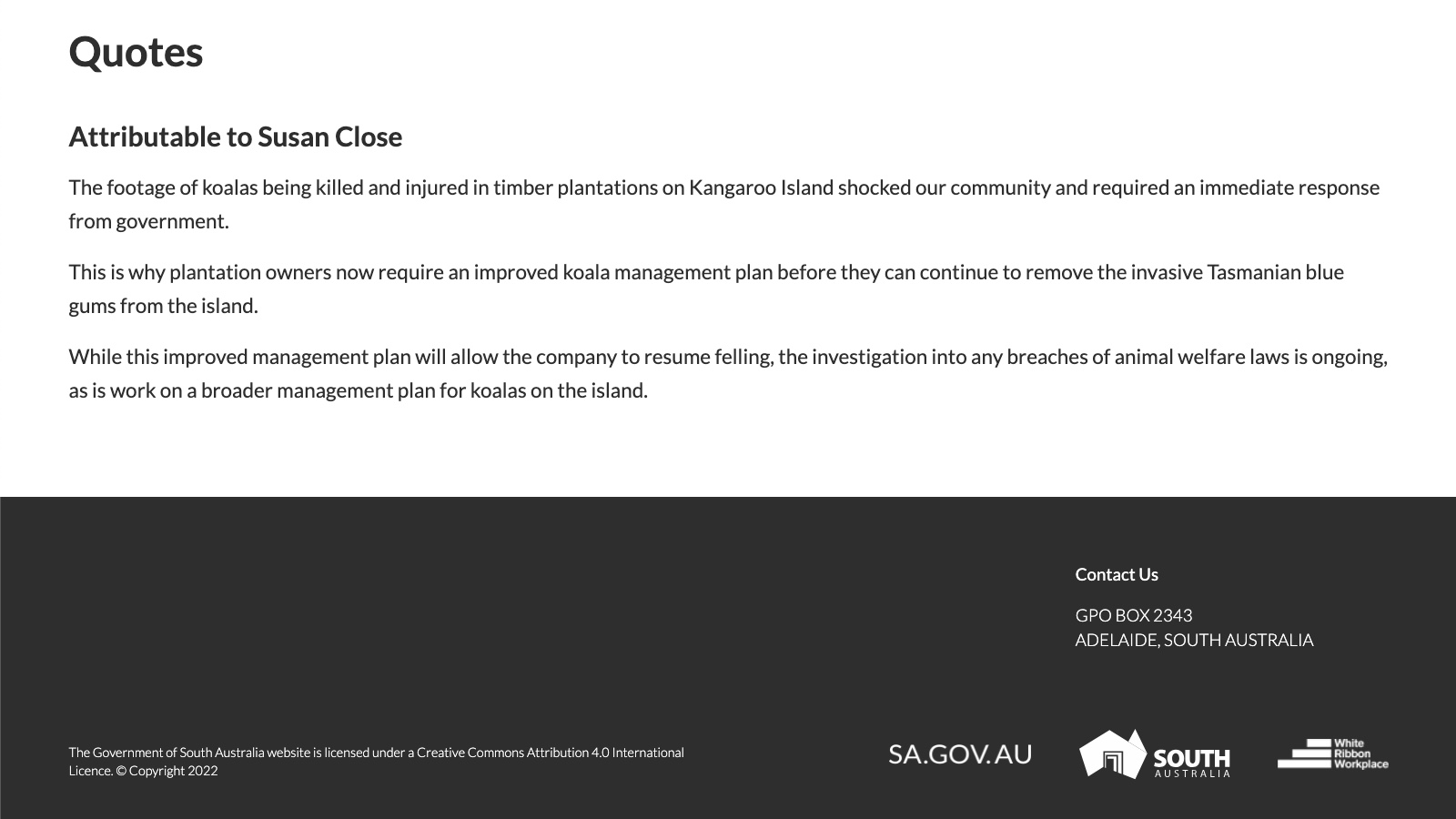
Quotes Attributable to Susan Close
"The footage of koalas being killed and injured in timber plantations on Kangaroo Island shocked our community and required an immediate response from government."
"This is why plantation owners now require an improved koala management plan before they can continue to remove the invasive Tasmanian blue gums from the island."
"While this improved management plan will allow the company to resume felling, the investigation into any breaches of animal welfare laws is ongoing, as is work on a broader management plan for koalas on the island."
A REMINDER OF KOALA KILLING ON KANGAROO ISLAND
Criminal investigation launched into koala crisis on Kangaroo Island | 7 News Australia - 2 April 2024
This video from 4 weeks ago reminds us that the South Australian Government opened an investigation into the koala deaths on Kangaroo Island.
“The Kangaroo Island koala crisis exposed by 7NEWS is at the centre of a criminal investigation as RSPCA inspectors arrive on the island."
“The government has rushed through new powers allowing it to halt logging at the plantations where dozens of koalas have been killed.”
This came after the growing outrage over claims that hundreds of koalas were being killed on Kangaroo Island as loggers destroy their feed trees, with koalas being flung to their deaths.
However, after the public outrage has calmed down, Susan Close has now approved the resumption of harvesting of koala habitat in Kangaroo Island's Tasmanian blue gum plantations.
Logging is expected to resume tomorrow - 3 April 2024.
NORTH WEST SYDNEY KOALAS LEFT OF THE MAP
NSW Koala Strategy Discussion Paper doesn't mention koalas in Hills/Hornsby/Hawkesbury - 26 March 2024
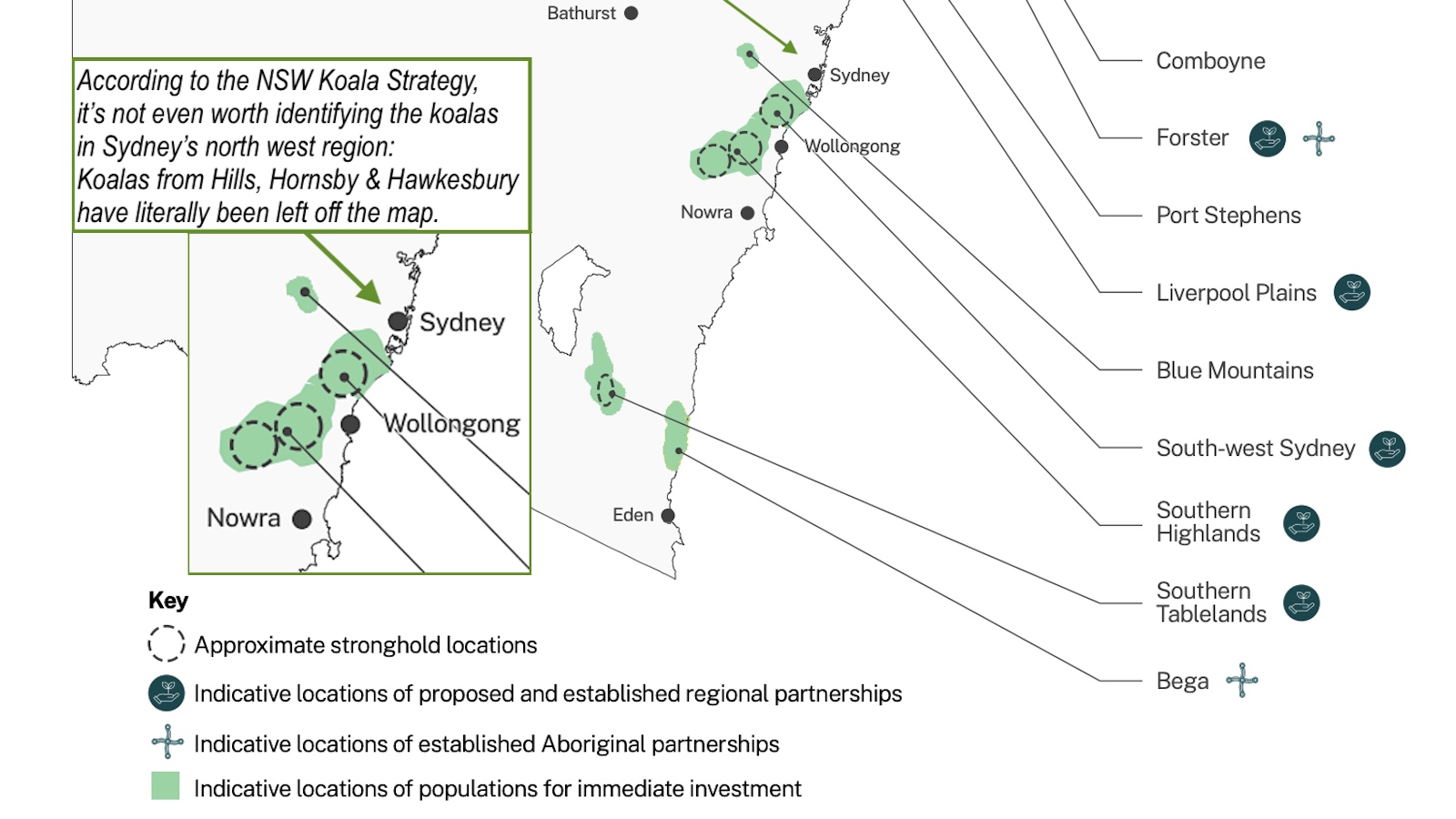
Following the NSW Koala Summit last Friday, the NSW Koala Strategy is open for review.
Unfortunately, the NSW Koala Strategy Discussion Paper doesn't recognise the Hills/Hornsby/Hawkesbury area of north west Sydney as having any koalas or even potential koala habitat:
Page 10 of the Koala Strategy Discussion Paper shows a map of NSW, with areas marked as:
- Approximate stronghold locations
- Indicative locations of proposed and established regional partnerships
- Indicative locations of established Aboriginal partnerships
- Indicative locations of populations for immediate investment
According to the NSW Koala Strategy, it's not even worth identifying the koalas in Sydney's north west region.
The koalas from the Hills, Hornsby & Hawksebury areas of north west Sydney have literally been left off the map.
It's very important to engage in the Review of the NSW Koala Strategy, and tell the NSW Government to accurately map koalas & koala habitat in NSW, including koalas in Sydney's north west, so that they can adequately allocate resources to all areas in need of koalas research, conservation, and protection of koala habitat.
Visit Reviewing the NSW Koala Strategy and submit your views - Submissions close on 26 April 2024.
Koala Advocacy will be providing more information about ideas you might want to include in your submission to the NSW Koala Strategy Review in the coming weeks.
EXTINCTION LOGGING
Extinction Logging Operations are a Profound Tragedy - 18 March 2024
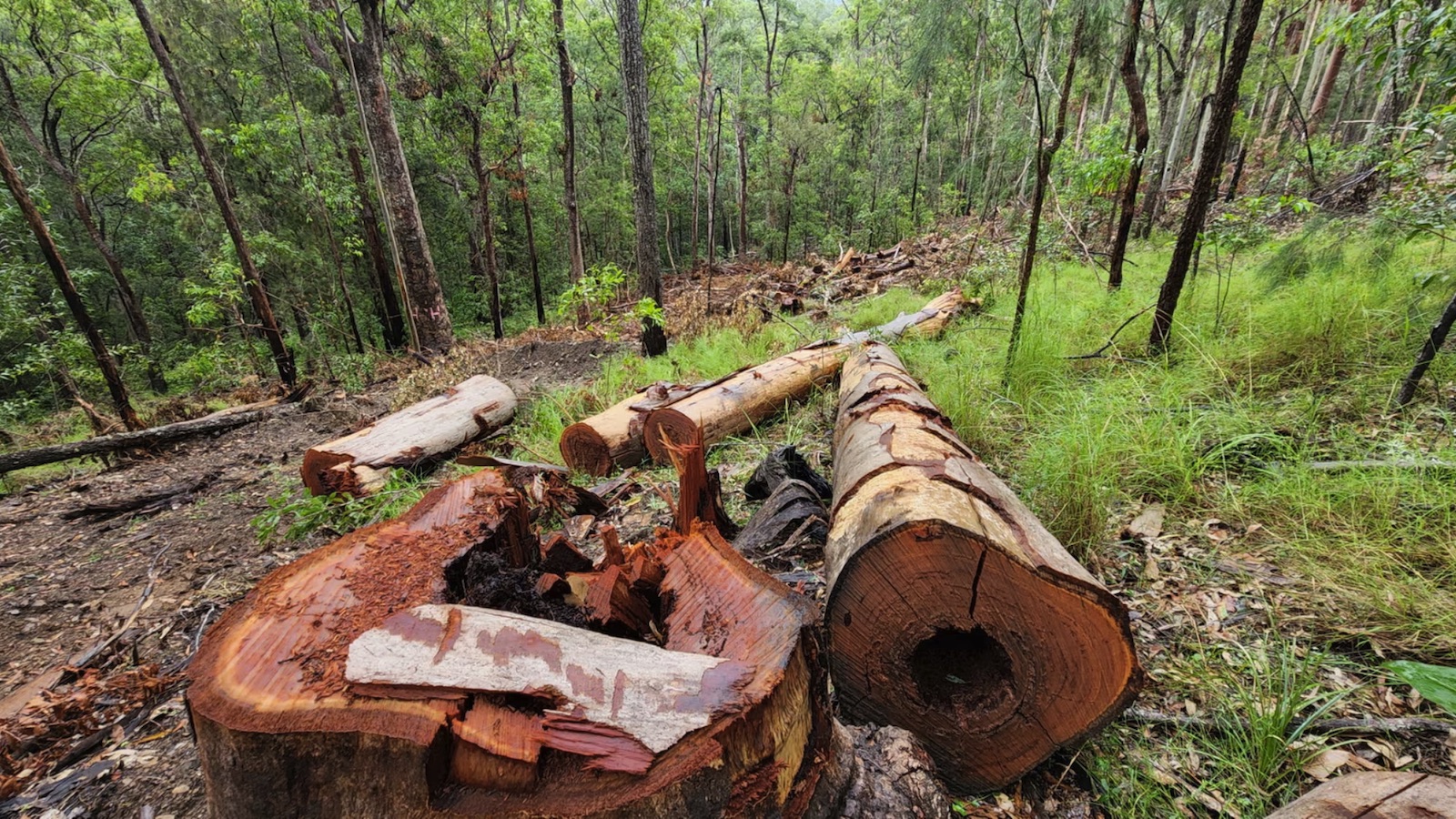
Longtime forest advocates have expressed disgust at the ongoing logging of koala habitat in northern New South Wales despite the state government promising to protect the koalas.
The NSW Labor Government won the election almost 12 months ago on the back of a promise to create the Great Koala National Park, which local koala groups have been requesting for years.
However, in a direct breaking of it’s election promise, the Minns Government continued the logging of the very area that they had promised to turn into the Great Koala National Park.
In the wake of much criticism of their broken election promise, Premier Chris Minns announced a halt to logging operations. In September last year, the Minns government ordered a halt to logging operations in certain high value koala habitat – known as “koala hubs” – in the proposed Great Koala National Park.
However, that move protected 5% of the proposed park but community campaigners say logging has continued in other important habitat within its boundaries, as well as in koala habitat outside the proposed park.
Mark Graham, a well known environmentalist, said: “These are extinction logging operations. This is a profound tragedy.”
The concerns come ahead of a state koala summit to be held in Sydney on Friday.
Mark Graham said if the government was serious about preventing the extinction of the koala, the simplest action it could take would be to immediately stop logging and protect all koala hubs and nationally important koala areas in state forests - both within and outside the boundaries of the proposed great koala national park.
He said there had been active logging throughout the park, including at Sheas Nob, north-west of the Dorrigo Plateau, Kangaroo river and Wild Cattle creek.
Read the full story at:
The Guardian: Continued logging of NSW koala habitat is ‘a profound tragedy’
MARCH IN MARCH FOR FORESTS
March To End Native Forest Logging - 16 March 2024
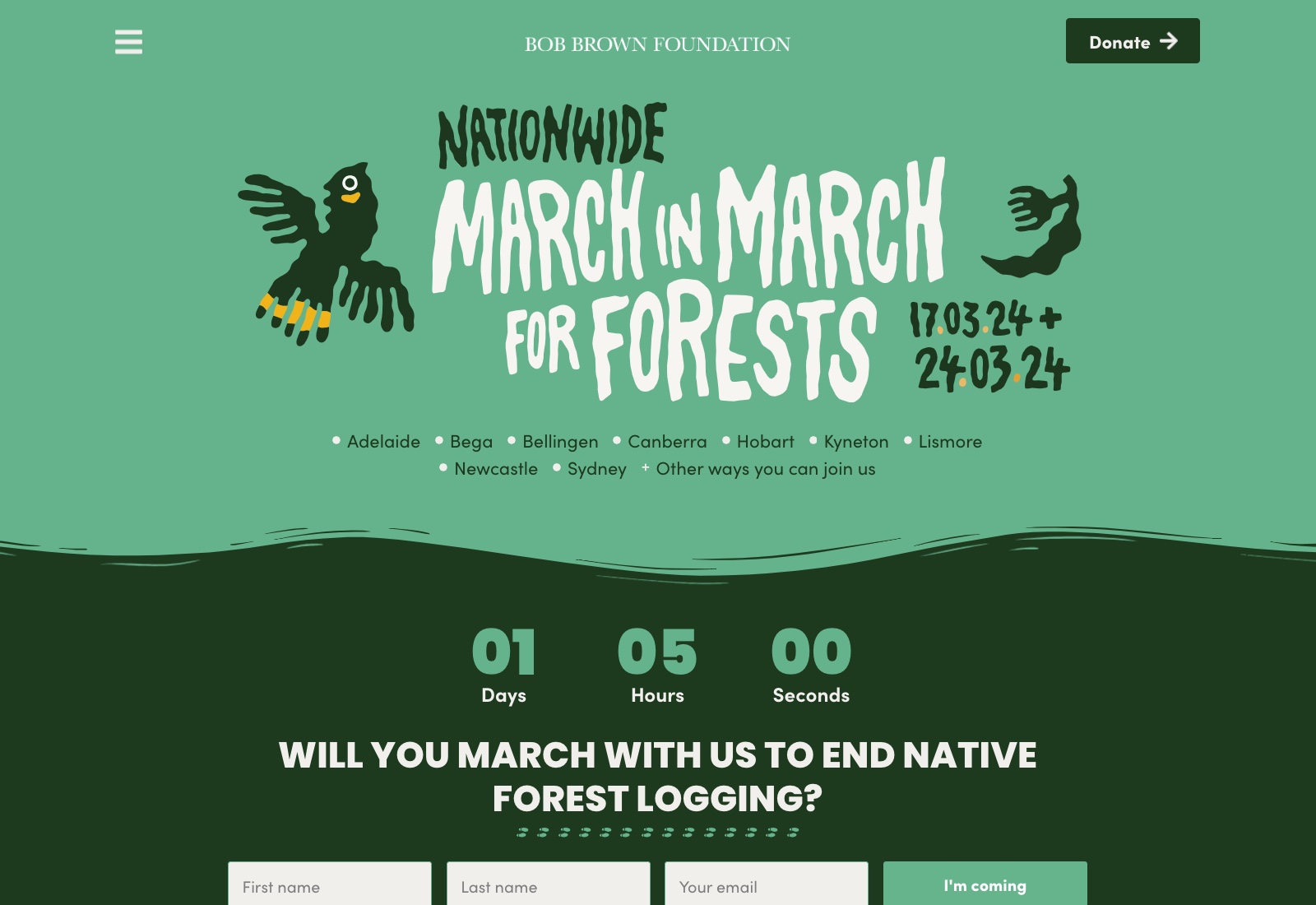
The Bob Brown Foundation are organising a nationwide "March in March for Forests" on Sunday 24 March 2024 (17 March for Hobart).
Right now, native forest logging is destroying critical wildlife habitat - killing endanged species like the Koala, Greater Glider & Gang-gang Cockatoo, as well as many other threatened species.
Enough is enough! It's time for Prime Minister Anthony Albanese and his government to end native forest logging, once & for all, Australia-wide.
There are marches planned for:
- Adelaide
- Bega
- Bellingen
- Canberra
- Hobart
- Kyneton
- Lismore
- Newcastle
- Sydney
Last year, 5,000 people rallied on the streets to stand up for native forests - let's make this year March in March for Forests even bigger!
Will you march with us to end Native Forest Logging?
Find out more, and Register at March in March for Forests and come along on Sunday 24 March 2024 (17 March for Hobart).
NSW KOALA SUMMIT
Putting koalas in the spotlight - 15 March 2024
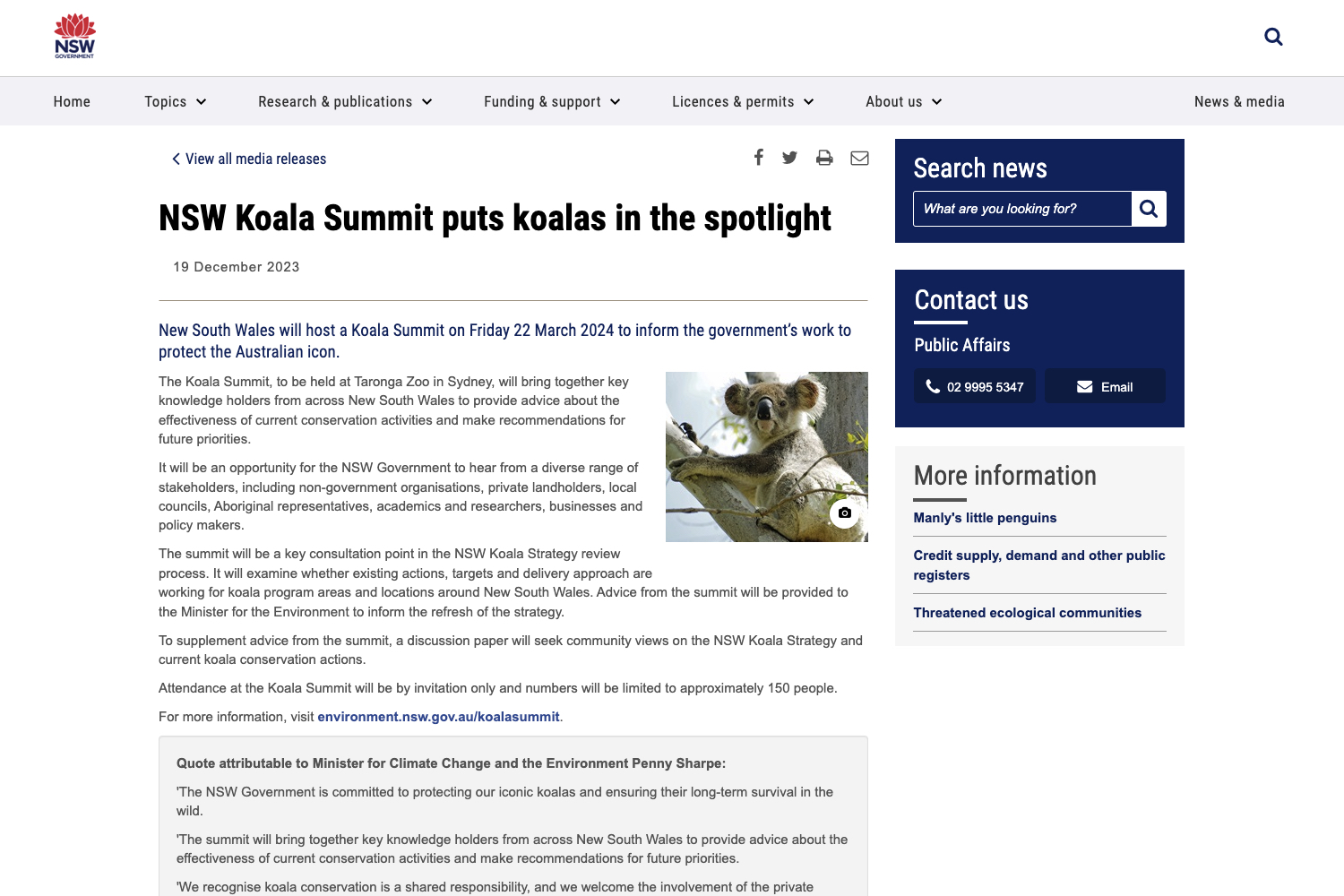
New South Wales will host a Koala Summit one week from today on Friday 22 March 2024 to inform the government’s work to protect the Australian icon.
The Koala Summit, to be held at Taronga Zoo in Sydney, will bring together key knowledge holders from across New South Wales to provide advice about the effectiveness of current conservation activities and make recommendations for future priorities.
The summit will be a key consultation point in the NSW Koala Strategy review process. It will examine whether existing actions, targets and delivery approach are working for koala program areas and locations around New South Wales. Advice from the summit will be provided to the Minister for the Environment to inform the refresh of the strategy.
To supplement advice from the summit, a discussion paper will seek community views on the NSW Koala Strategy and current koala conservation actions.
Attendance at the Koala Summit will be by invitation only and numbers will be limited to approximately 150 people.
Because the numbers are so limited, many people have been excluded from attending this important koala summit, which is painfully disappointing for people involved in koala rescue, conservation & advocacy who've been restricted from attending.
Environment Minister Penny Sharpe stated:
"The summit will bring together key knowledge holders from across New South Wales to provide advice about the effectiveness of current conservation activities and make recommendations for future priorities.
"We recognise koala conservation is a shared responsibility, and we welcome the involvement of the private sector in supporting our efforts."
When questioned why so many people have been excluded from the Koala Summit, a government source stated that it's because the venue can only hold a limited number of people - however the NSW Government was free to hold the summit in any venue they chose, or to hold the summit over multiple days to allow the full range of voices to speak up and discuss the NSW Koala Strategy.
If you haven't been invited to attend the Koala Summit, there is an opportunity to read the Discussion Paper, and make a submission to the consultation process.
If you have any interest in koalas, it's vitally important that you engage in this consultation process on the NSW Koala Strategy, because it will shape government strategy into the future, and there are significant gaps in both the information that the Government is providing, and the strategic policy that the Government is proposing.
Please don't miss this important opportunity to have your say.
Submissions close on 26 April 2024.
Koala Advocacy will be providing guidance on making submissions to the consultation, so please stay tuned.
STATE OF KOALAS IN THE SYDNEY BASIN
First Annual Assessment - 15 March 2024
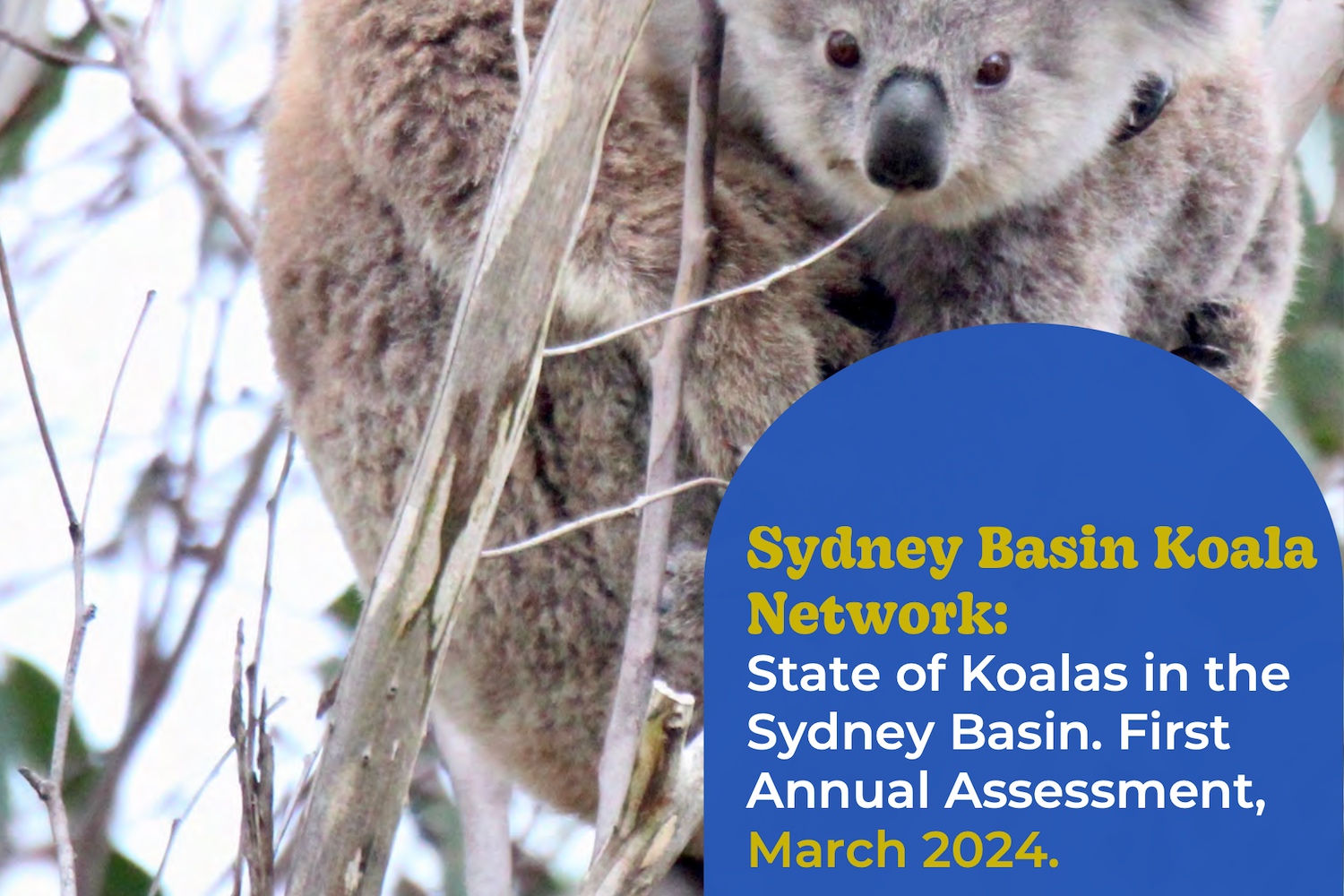
The Sydney Basin Koala Network have released new research which shows that the area where koalas are found in the Sydney Basin is declining and the areas supporting long standing breeding populations of koalas is also reducing.
SBKN have released their State of Koalas in the Sydney Basin, First Annual Assessment dated March 2024.
In the time since koalas were listed as endangered, things have gone from bad to worse with growing threats from development set to push koalas into further decline. The need for protection is becoming ever more urgent.
KOALA ADVOCACY LAUNCH
Speaking Up, Promoting Best Practice & Providing Connection - 14 March 2024
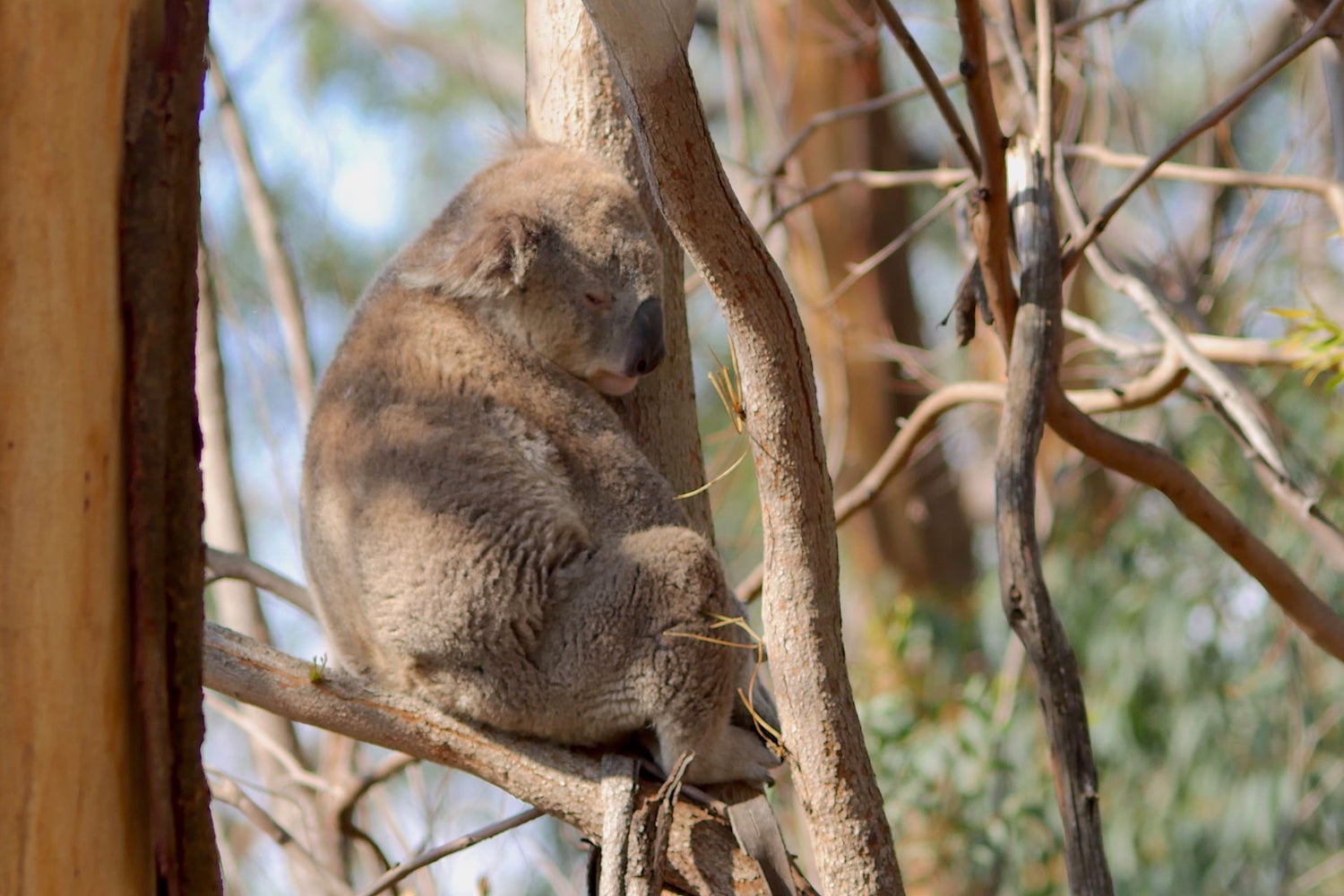
Koala Advocacy have launched a new website & Facebook page with the mission of supporting & defending koalas and their habitat against all threats, both natural & those caused by human society.
The launch is in response to the significant & ongoing dangers facing koalas in every Australian state with a resident koala population.
Whether it's native forest logging in north east NSW, loss of habitat through urban development in Sydney & Brisbane, harvesting of blue gum plantations in Victoria or Kangaroo Island in South Australia, or destruction of koala habitat for expanding agricultural lands, mining or wind farm projects, the continual fragmentation and loss of koala habitat poses the most serious threat to koala populations across the country.
Koalas face other threats including devastating loss from bushfires & drought, injury or death from being hit by cars & trucks on the roads that we build through koala habitat, dieback of trees & forests, destruction of wildlife corridors that link between larger habitat areas, predation by dogs in urban landscaps, and the ubiquitous threat posed by diseases such as Chlamydia & Koala Retrovirus.
The major problem of habitat loss is compounded by the fact that the three levels of government in Australia (Federal, State & Local Councils) all regularly approve the destruction of koala habitat, when they are fully aware that fragmentation and loss of habitat causes the most serious decline of koala populations.
It therefore stands to reason, that the most serious threat facing koalas, is also the one which could most easily be fixed, if our government was willing.
Koala Advocacy has launched today in response to these issues, and to address these concerns will:
- Speak up for the protection of koalas & their habitat
- Promote best practice for koala conservation strategy
- Provide a meeting place for connection between various koala rescue, care & support groups
Please join with Koala Advocacy in our efforts to conserve koalas & their homes in our eucalypt forests.
Remember that you're not powerless, but we all have a vital role to play in saving Australia's koalas. Please step up with us on this important journey towards saving our much loved koalas into the future.
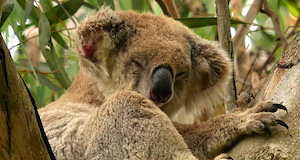
OUR MISSION
Koala Advocacy supports & defends koalas and their habitat against all threats, both natural & those caused by human society.
- Speaking up for the protection of koalas & their habitat
- Promoting best practice for koala conservation strategy
- Providing connection for koala rescue, care & support groups
Read more about Koala Advocacy's Mission
JOIN OUR MAILING LIST
Inspiration
